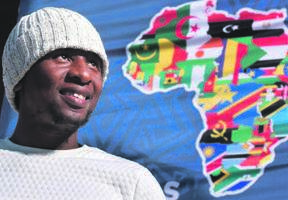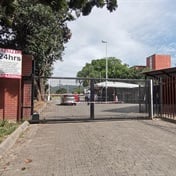
Language can bring a sense of unity, identity and belonging among a people; but it can also be an all-too-glaring marker of differences between people and be used to discriminate and isolate – even between people of the same race.
And, in a country such as South Africa, where xenophobic attacks and violence against African immigrants have increased and been well documented, the situation for foreigners becomes all the more precarious as they try to navigate life in this country, especially since, according to University of Cape Town lecturer Ivan Katsere, xenophobia is based on one of the very elements that asserts identity – language.
Katsere’s research is focused on African immigrant families in South Africa, examining how their identities are affected as they move through informal spaces, such as taxi ranks and shops, and more formal spaces, such as hospitals and schools.
Speaking to City Press this week about his work into the “politics of language”, Katsere said he had initially been interested in researching the phenomenon of xenophobia, but language emerged as part of a broader, more nuanced look at how xenophobia lives and finds space within society.
Katsere is Zimbabwean and first came into the country in 2009, and he’s lived in Johannesburg and Cape Town. He began working with his focus group of black Zimbabwean families in 2016 while pursuing his master’s in research psychology at Wits University.
“I discovered in South Africa during my initial research that xenophobia was an attack on foreign black bodies and seen as a happening for a particular moment in time. So, for instance, in 2008, there was the ‘burning man’, and after that there was another incident and another. But for the people living life as immigrants in South Africa, it’s a daily reality from which they cannot escape. So, in trying to bring the truth out that it is actually daily, I started to explore language,” he said.
And the more immigrants relied on English as a form of communication with local people and were fluent in it, as opposed to local indigenous languages, the more prone they were to being discriminated against, bullied, or, even worse, dehumanised, he said.
A 38-year-old Zimbabwean woman told Katsere of her experience in which language was used to dehumanise people: “When you speak in English to people, especially where there are a lot of people, like when you go to hospital, they will laugh – they will laugh at you. When they laugh, they will start to talk and whisper: ‘Heeeee, this is that kwerekwere [a derogatory word for foreigners].’ So when I speak in English, they know I do not speak isiZulu and they laugh at you.”
She relayed this experience for his study titled Narratives of Zimbabwean children and parents: Language brokering in Johannesburg.
For the study, Katsere interviewed nine families, which included a parent and a child. The criteria were families where the child acted as a language broker for their parents in different settings.
“We found language brokering happens a lot in both formal and informal spaces, such as when the police are involved and a child has to speak for their parent, or hospitals, which came out a lot, and schools or even taxis.”
In the study, Katsere posited that Zimbabwean migrants who live in South Africa are mostly bilingual, usually speaking either Shona or isiNdebele with English.
“The role of language is salient in xenophobic attitudes, with many South Africans refusing to speak English [even if they can] and choosing to speak their local languages to Zimbabweans … this might not be a problem for isiNdebele speakers, who can speak Nguni languages, but for Shona speakers, this presents a communication barrier as very few understand any local vernacular languages,” he said.
Hence the need for brokering – using children to mediate and intervene and translate for their parents because children assimilated into local language and culture faster than their parents.
Brokering becomes important for survival, particularly when dealing with authorities, such as the police, who routinely use language as a way to identify “foreigners” rather than the legitimate checking of documents, which Katsere – citing research – said had led to a large number of legally documented migrants being arrested and detained, “with some of these people having just failed to have made a response in isiZulu and some for ‘just being too dark’”.
Katsere has experienced some of this discrimination himself, saying that in instances where he is in a taxi and a Shona person calls him on his phone, he won’t answer the call because it will expose his vulnerability through language.
He hopes his research will spark conversations into the daily realities around xenophobia and Afrophobia, and will “reach a place where, as black people, we are comfortable with ourselves and are comfortable with other people’s blackness”.
TALK TO US
What should be done to change attitudes towards foreign nationals?
SMS us on 35697 using the keyword LANGUAGE and tell us what you think. Please include your name and province. SMSes cost R1.50. By participating, you agree to receive occasional marketing material
 |
| ||||||||||||
| |||||||||||||




 Publications
Publications
 Partners
Partners








